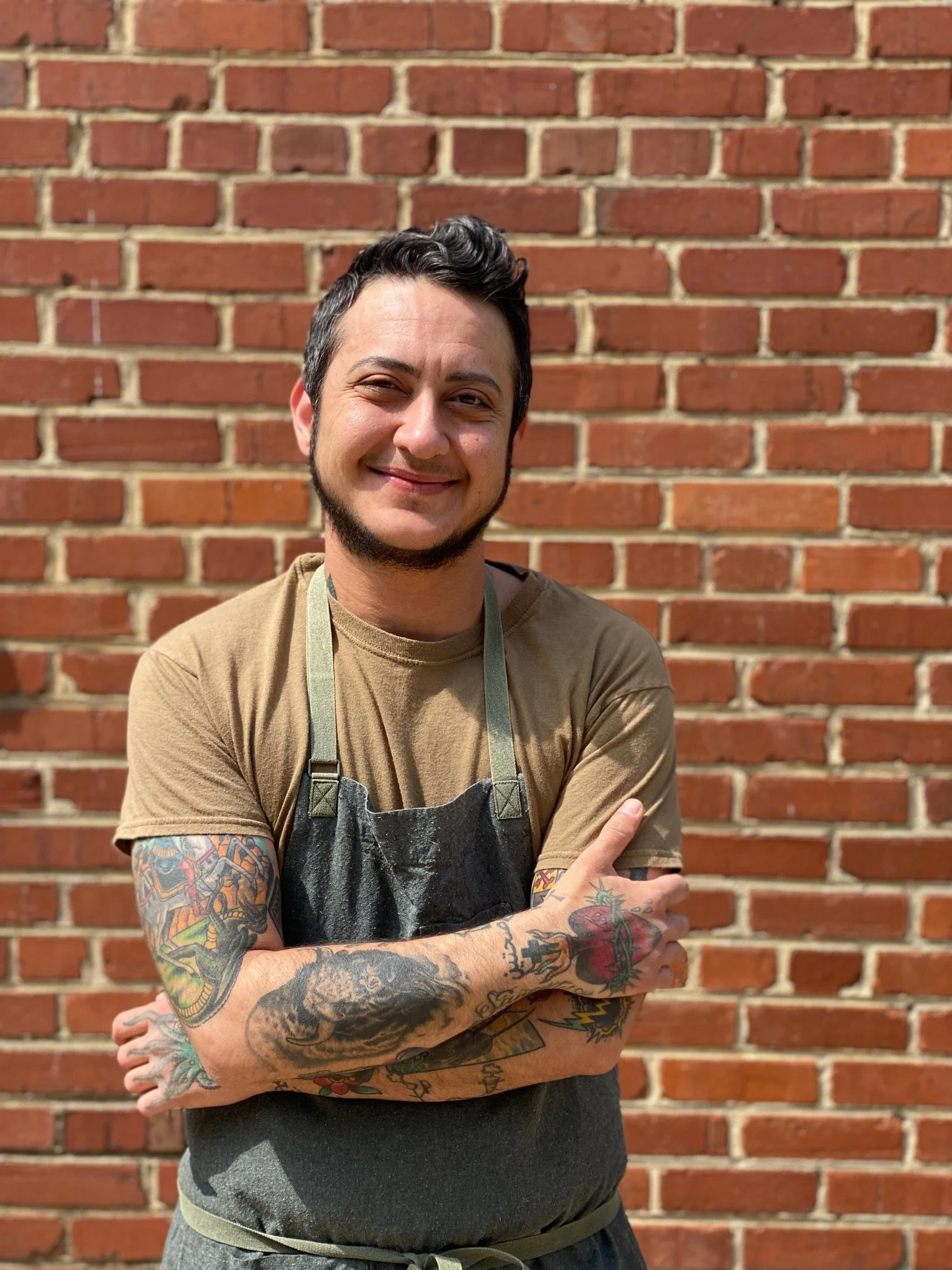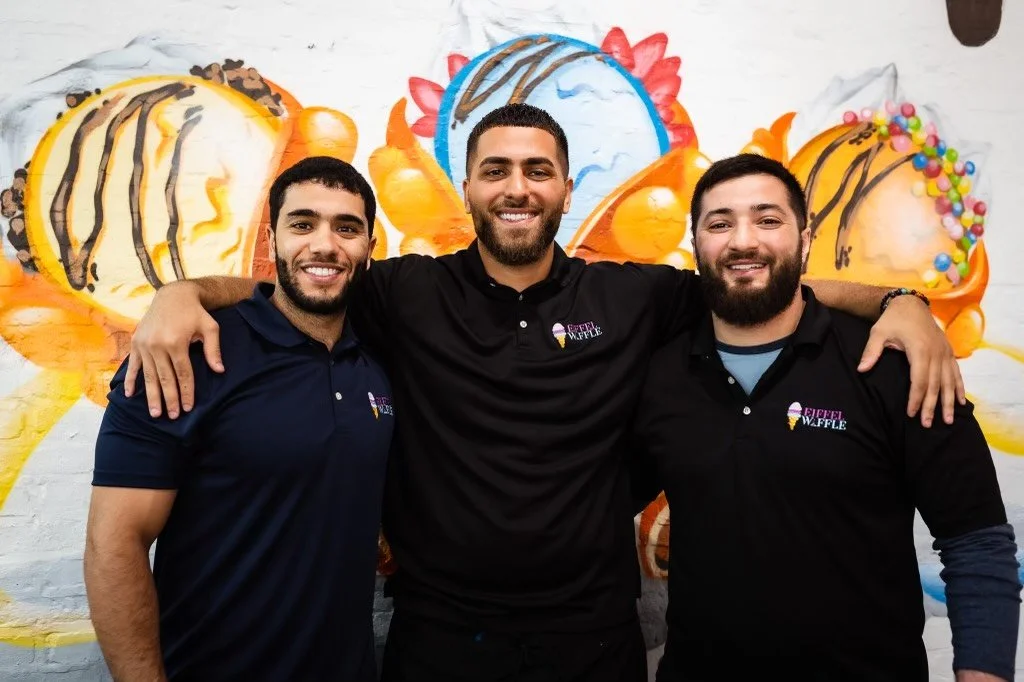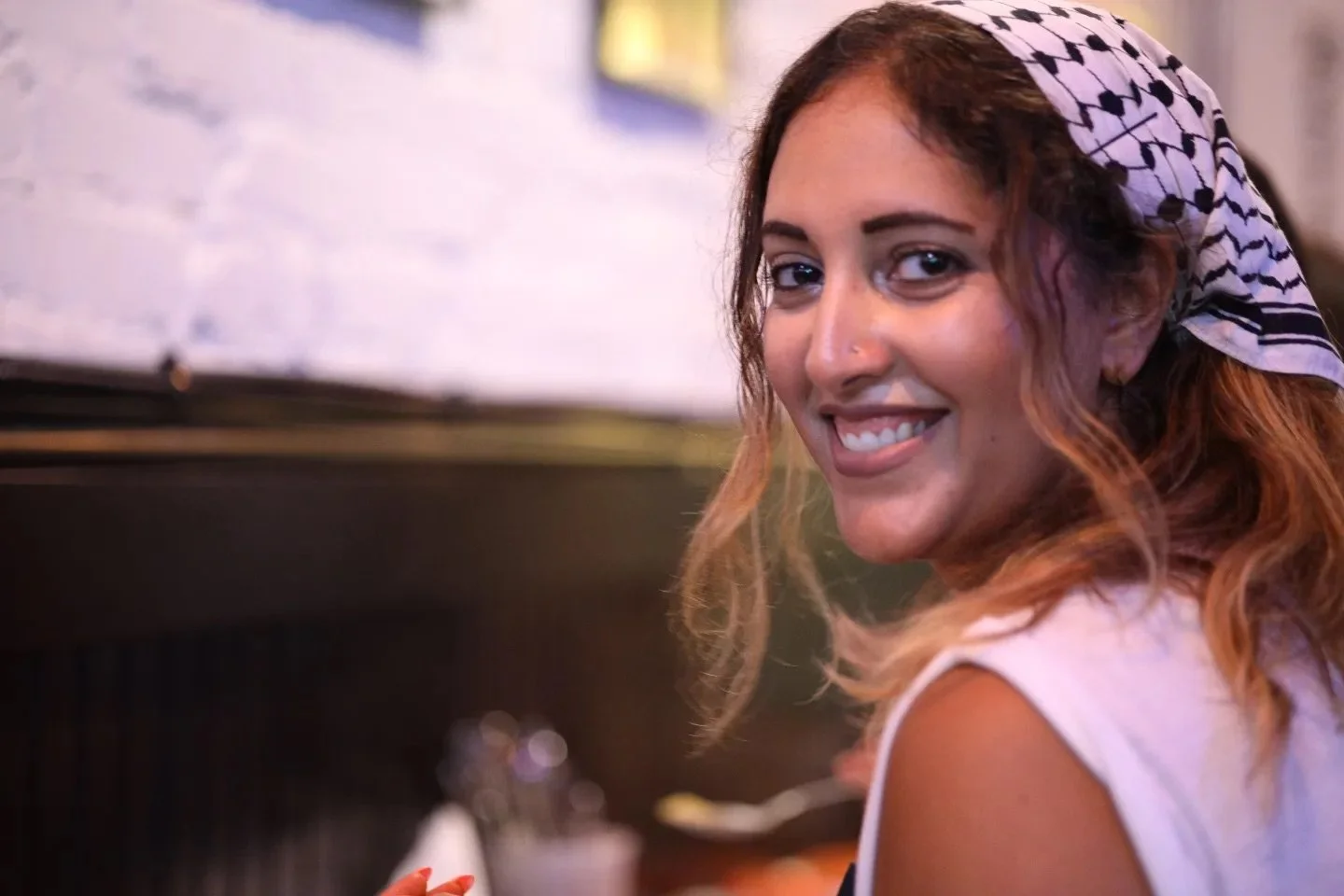Power plate: How a D.C. chef reclaims and uplifts their Palestinian and trans identities
The following was originally published in Palestine in America’s print Food Edition. Please consider subscribing or purchasing individual individual print and or digital copies.
I was hanging out at my favorite Middle Eastern bar in Washington, D.C. in the summer of 2020 — pandemic fresh — trying to navigate a social life amidst the panic. Most places in D.C. only offered outdoor seating, and it was there at a table outside that a friend of mine asked, “Have you tried the new Palestinian chicken pop-up?” Immediately I was interested, for two reasons: one, anything Palestinian piques my interest; two, Palestinian chicken? What was that?
Turns out, it was musakhan-style whole rotisserie chicken, marinated in Palestinian spices and cooked until juicy and tender. Not only did Shababi serve the chicken, but there were incredible sides on the menu such as Aleppo pepper-crisp cucumbers, french onion labneh (yes, you heard right!), za’atar fries, taboon bread, and so much more. I immediately had to try it, and so I placed an order online for pickup from Springfield, Virginia, where Shababi was operating out of a Lebanese restaurant.
I immediately struck up a friendship with the owner, Marcelle Afram, a transgender Palestinian American chef whose family has roots from Beit Jala and Yaffa, and who had previously run the kitchen at one of D.C.’s most famous Michelin Star restaurants, Maydan. We communicated via Instagram in the week leading up to the day I’d pick up my food, and — since it was 2020 and vaccines were not yet available — waved at each other through the glass window as I picked up my bag of food from the table set outside for contactless pick-up.
When I tell you that the smell of the food was so overpowering that my friend and I could barely contain ourselves! As soon as I got home, I started laying out the food, using a large serving platter to display all the goodies. My camera got to eat first, as I shot video and photos from every angle. I wanted my followers to see this new Palestinian pop-up in its glory, and to support this concept.
The food was incredible (was there ever any doubt?). But I was curious to know more about Marcelle, so I looked up info about them and asked around. I found out they were formerly the head chef at Maydan, and had left shortly after the pandemic began. The concept of their pop-up came from the realization that there was a need for authentic Palestinian cuisine. And how right Marcelle was. The pop-up exceeded any success they had planned on. It ran from January 2021 until September 2021, and then it was time to put the concept into a brick and mortar.
This is where Shababi Diner comes in. There was clearly a demand for Palestinian food in the DMV. For an area that has one of the most diverse food scenes in the country, it was still lacking enough Palestinian options. The diner is still in progress, and in the meantime Marcelle hosts small events around the city to keep everyone just at the edge of waiting, serving up the french onion labneh, charred squash muttabal, and knafa waffles.
The thing I admire the most about Marcelle, however, is the fact that they have dedicated their purpose through their recognition of their food to also highlight the struggles of trans and queer Palestinians and other Arabs. They have been vocal for almost two years now, after years of struggling with their identity and the expected bias and isolation that so many marginialized queer and trans people face. Serving as an inspiration to so many, Marcelle has used their career to intersect the two causes in spaces such as the White House, the D.C. queer scene, and the D.C. hospitality scene. They have spoken on panels and podcasts, and continuously show up for their community.
I see a lot of myself in Marcelle; we both grew up with families that operated restaurants, we both love feeding people, and we both care deeply for the Palestinian people and work to bring them freedom and liberation. We have had discussions on reclaiming our food, a concept that we feel more fervently being in the D.C. food scene that so often sees Palestinian food appropriated. They told me that the appropriation of our food is a form of erasure, and always harmful to our existence as Palestinians. Joining other newly-emerged Palestinian chefs on this issue, Marcelle proudly proclaims Palestine and our heritage as inspiration for their food.
That’s not to say that they haven’t struggled along the way. Marcelle recounts multiple instances where they were passed over for certain speaking opportunities because of how vocal they are about their identity. But what they find comfort in, are the spaces that welcome them wholly and without reservation. Using these opportunities, Marcelle has been able to change the image around their intersecting identities, such as at a meeting with Vice President Kamala Harris in June of 2021. Being a queer chef and activist brought them to the table in honor of Pride month; however, once there, Marcelle saw it as an opportunity to bring up Palestinian and Arab queers, Arab census representation, and Palestinian humanity as an issue for the administration to focus on.
The story of Marcelle, while fraught at times, has turned into a beautiful narrative that celebrates the most amazing parts of them. At their core, they are passionate, supportive, and compassionate. They serve as an inspiration to me and many other activists and chefs, both Palestinian and non, and have impacted so many in the short time they have been authentically themselves on the scene. As Marcelle told me in an email recently, “In the face of the attempt to demolish our existence, it’s important to use all aspects of who we are to bring our identities to the forefront.” Looking forward to seeing all the amazing things they continue to bring to our community.




